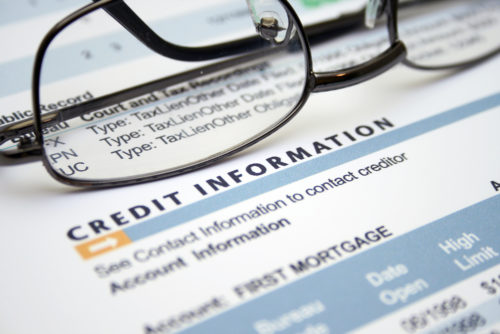
Your credit score plays a major role in the lifetime of your finances. It is critical that you develop the habits involved with building a good credit score as soon as possible to increase your chances of buying a house or car, avoiding financial stress, and courting a better quality of life.
Most credit bureaus — Experian, Equifax, and TransUnion — use the FICO method of credit score calculation, which involves:
- Payment history;
- Outstanding debt;
- Length of credit;
- New credit.
It takes dedication to positively maintain all these financial elements and build a good credit score, and takes even more hard work to climb out of the hole if you have a bad one. Improving your credit score may be tough, but if you remain persistent in the following practices, you may see a change in anywhere from six months to a year.
Table of Contents
How to Increase Credit Score Immediately
It is important to keep in mind that there are no overnight remedies for improving your credit score. What you can do is start making changes by ditching bad fiscal habits and immediately adopting new ones, and working intently on sending the right financial signals to credit reporting companies. Your priority should be to get, and stay, current on all payments related to bills and debt. You can do this by implementing the following practices immediately:
Use Payment Reminders
Missing payments can negatively affect your credit score in various ways. Consider setting up reminders to ensure your car loan, mortgage payment, and utilities are paid on time. Jot down reminders on your calendar or sticky notes or set up alerts on your phone to let you know when it’s time to pay your bills.
Set Up Autopay
It is possible for some bills to slip under the radar due to honest mistakes, which end up going unpaid until you get a notice. If you have the income to pay all your bills and overdrafting your account is not a concern, one option is to arrange for automatic debit payments. Autopay is a tool used by most electronic account providers and banks that allows you to set up recurring monthly payments without ever having to log into a computer. This method of paying your bills makes it virtually impossible to miss a payment.
Stop Accumulating Debt
The most straightforward way to get out of debt is to stop spending on credit, and to stop borrowing whenever possible. If you are paying your bills on time while cutting down on spending and borrowing, you’ll start to get a more clear understanding of what your budget should look like. From here, you can set a realistic budget for yourself to more concisely monitor your spending and to start saving money.
Make a Plan to Pay Down Existing Debt
Setting a budget will likely free up more cash to start paying off those credit cards. Get your balances under control with a monthly spending plan, including setting aside money to pay of existing debt.
Contact Your Lenders and Creditors
Speaking with your lenders and creditors not only can give you a precise look at where you stand financially with credit card companies and other agencies, but can also help you negotiate to minimize the damage already done to your credit score. In certain circumstances, you can ask for forgiveness and remove previous late fees. Working out an agreement is generally only possible if you have a positive payment history and are in good standing with these agencies, but it is another method in reducing the damage done to your credit score.
How to Raise Credit Score in 30 Days
The financial habits above are best practices for your overall financial health. Additionally, these methods will also set you up to carry out the next phase of your credit score improvement plan. You are more likely to see a change in credit score by deploying the following tactics — albeit, you won’t see a difference until around 30 days which is the fastest reporting cycle from lenders to credit bureaus.
Dispute Errors on Your Credit Report
Errors on your credit report are the exception to the above 30-day rule; should you find and successfully dispute any errors on your credit report, you may see an expedited change in your credit score. After ordering a free report and checking it for inaccuracies, you’ll need to file a claim with the correct credit bureau.
Oversights on your credit report are not uncommon but can negatively impact your score. Make sure you examine your credit report to be certain that it is correct, and that your financial standing isn’t being penalized because of a credit bureau’s mistake.
Increase Your Available Credit
Your credit score can also be affected if you owe too much on your credit cards and lines of credit. The ratio of your outstanding balance(s) to your line(s) of credit is called credit utilization, and it is a significant consideration when your credit score is calculated. If this number is high, your credit score will be decreased.
For instance, let’s say you had three credit cards. Credit card one has a credit line of $1,000, credit card two has a credit line of $2,000, and credit card three has a line of $3,000. Your outstanding balance on credit card one is $400, your outstanding balance for credit card two is $500, and credit card three has an outstanding balance of $600. If we add your total outstanding balances of all three cards ($1,500) and divide it by the total of all three lines of credit ($6,000), we get a credit utilization ratio of .25 — or 25 percent.
A credit utilization of 25 percent is excellent, as it is best to keep this number below 30 percent. However, if your credit utilization is over 30 percent, you may want to consider increasing your available credit. If your credit issuer decides that you are creditworthy, they may grant your request to extend your available credit. This will increase your total credit while your outstanding balance remains the same — lowering your credit utilization.
It should be noted that applying for a new credit card and/or line of credit should be done so with great care. A new credit card may seemingly lower your credit utilization but may end up hurting your credit in other ways. Applying for a new credit card means that a bank will make a hard credit inquiry. A hard credit inquiry can negatively affect your credit score. Furthermore, you will have to keep up with a new set of payments judicially if you are to improve your credit score while applying for a new credit card.
Become an Authorized User
Parents are likely to add their children as an authorized user to their lines of credit in the same way a spouse might add their significant other. As an authorized user, you are given full access to another person’s credit card. Authorized users are also not legally obligated to pay the balance or fees on the account, which may come back to haunt the primary account holder.
You may consider an authorized user relationship with a primary account holder if you want to build some credit history. If you have no credit history, an authorized credit holder may see a credit score established within the first six months. Depending on how both parties handle the account, this credit score may vary from poor to excellent. If you both keep up on the shared account, the authorized user can build credit history and will be on their way to improving their credit score.
Negotiate Debts and Payment Plans
Debt relief and negotiation should only be considered as an option after you see no realistic possibility of coming up with a payment or budgeting plan yourself. Negotiating your debt and/or a payment plan offers only temporary relief, as you still will have to pay a portion of the amount that you owe. Additionally, there are generally tax implications related to debt negotiation, and if a lender does decide to reduce your debt, you may end up having to claim this same amount as income for tax purposes.
Debt negotiation also looks risky on a credit report. Other lenders may see that you are having a tough time staying current with one line of credit and may not be willing to grant you another.
How to Fix a Credit Score in 6 Months to a Year
If you’ve deployed some of the basics and best practices to improve your credit score, you now have a realistic view of what healthy financial stability looks like, and what you’ll need to do to keep it that way moving forward. The basics should form the backbone of future financial habits that continually help you keep improving on your credit score. If you’ve laid the groundwork and adhere to it, you can start to look toward a healthy credit score in as little as six months to a year. You now should have a decent credit history and should continually strive to maintain and/or improve it by making the following practices a routine.
Perfect Your Payment History
You should see an improvement in your credit score with 12 months of on-time payments if you have set your bills on autopay and noted payment reminders. You may now have room in your budget to pay a bit higher than your minimum payments. Use this extra money to your advantage to further reduce your revolving debt.
Maintain Revolving Debt at Less Than 30 Percent
In perfecting your payment history and further reducing your debt, keep your credit utilization in mind. You may want this number to be below 30 percent; however it may be a good practice not to have it at 0 percent. If you have a credit utilization of 0 percent, this means you are not paying toward anything — no longer building payment history. Maintaining a healthy credit utilization and paying your bills on time is paramount to building a great payment history.
Pay Down Non-Revolving Debts
It may be a long road, but getting your accounts out of delinquency and building a good payment history is only the beginning of building a high credit score. It is now time to start looking at paying off those non-revolving debts. You’ll want to get yourself on a plan to manage these debts and minimize them as much as possible.
Non-revolving payments are payments such as business and car loans, mortgages, student loans, and other lines of credit that close once you’ve paid them off. Non-revolving debts are unlike revolving debts — such as credit cards which will stay open after you’ve paid them or even extend your line of credit. Rather than having these expenditures hanging over your head and possibly going delinquent. Practicing the financial habits above should put you in the position to start paying on your non-revolving debts, and eventually closing them out.
Stick to a Budget and Payment Plan
Budgeting is a must for credit score improvement goals, no matter what the timeline. If you don’t have a personal budget and/or haven’t worked out a plan with lenders for debt relief, you run the risk of slipping back into old, bad habits. This, in turn, will cause your credit score to decline, reversing all the hard work you’ve done to improve it. It is important to remember that your credit score can always go back down — but equally as important to remember that practicing these good habits will help you build and maintain a healthy credit score.
Image Source: https://depositphotos.com/






